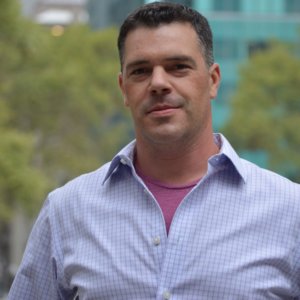
Stacey Ustian admits that she struggled to land her first job in the tech sector. She had left her previous job so that she could teach herself the skills she needed to become a data engineer. Feeling like she was finally ready, she jumped into the job market.
“All I did for nine months straight was apply and interview for jobs,” she said. “You go into these interviews and they want people with experience. Of course, I didn’t have it because I was changing careers. I wasn’t having great success.”
On LinkedIn, Stacey started getting messages from recruiters who obviously didn’t have a clue about her career goals.
“Once you mark yourself as ‘open to work’ on LinkedIn, you get all sorts of things from recruiters,” she said. “I would get these messages about the roles that they were recruiting for, and they were totally irrelevant.”
Then Stacey connected with the team here at Averity, and everything changed. Within a couple of weeks she had interviews with three companies eager to make her an offer, including the place she decided on, ActionIQ.
I love telling people this story because it emphasizes the fact that when it comes to finding a job in the tech field, you shouldn’t go at it alone. Finding the right job is a challenge even when the economy is humming along. At a time like today, with so much economic uncertainty, it’s much tougher.
We’ve been talking with a lot of people in the tech industry who landed their current job with Averity. They all agreed with Stacey that having the right recruiter makes the job search easier. But they also mentioned several other reasons that they will always use a recruiter.
Prepping you for interviews.
Are you nervous about the interview process? Maybe, like Stacey, you’re changing careers. Or maybe, like engineer Eleanor Schlechter, you haven’t sat face-to-face with a hiring manager for a while.
“I hadn’t gone through the interview process in a very long time,” she said. “I didn’t really know what to expect, especially because I was in a later stage of my career.”
When Eleanor partnered with Averity, we walked her through the entire process. We let her know exactly who she would be interviewing with, what the process would be like, what she needed to demonstrate to have a successful interview, and when she was likely to hear back from the company.
Giving you feedback
Something very important after you take the time to do either one interview or 5 interviews is feedback. We’ve heard so many stories of candidates doing anywhere between one round to four rounds of interviews, and never hearing about how they did and any specifics. How should a job seeker ever improve their interviewing skills if they don’t receive constructive feedback about their previous interview? This is a very important step that often gets overlooked. “Averity was definitely helpful in prepping me for interviews, but also calling me immediately afterward and asking how it went and offering me feedback,” Eleanor said. “I wasn’t sitting alone in my room wondering what I should do next.”
Getting you the best package.
One of the most stressful parts on interviewing is negotiating things like salary and benefits. Data scientist Shawn Squire said that working with Averity made that part of the process a breeze.
“They handled most of the back and forth with the company,” he said. “And they negotiated for me and I was extremely happy with the result”
Serving as ‘career mentors.’
When she was looking for a job, field engineering manager Jenny Wong knew she wanted someone who would serve as a sounding board. She said she found that in Averity’s Stephanie Grosso.
“If I had anything to talk about, either during the application process or even after I was starting off in the new job, she made it very clear that I could reach out to her,” she said. “It was a pleasant surprise that she would offer her help even after I secured the position. Stephanie really goes above and beyond.”
Expanding your horizons.
One mistake that many job seekers make is only looking for positions at their current level. A recruiter can evaluate your skills and let you know what other types of jobs you should consider. They can also encourage you to think outside the box.
Data analyst James Falasca said that because he had spent so many years in healthcare, he never would have considered another field. Averity’s Mark Howland encouraged him to think about a job in media.
“He approached me about some of the openings at NBCUniversal,” James said. “I told him that I didn’t know if I had the right skills. He said, ‘James, just put your resume in and let’s see what happens. The worst thing they can say is no.’ So without him encouraging me, I would have never thought to apply, especially to a company like NBCUniversal.”
At Averity, we aren’t just trying to help people find a job. We’re helping them build a career. That’s why our focus is on building connections with them that last a lifetime.


Create an Account or Sign In